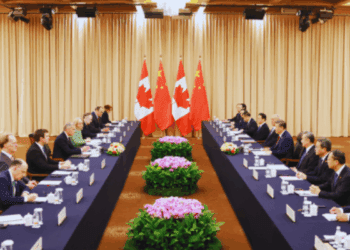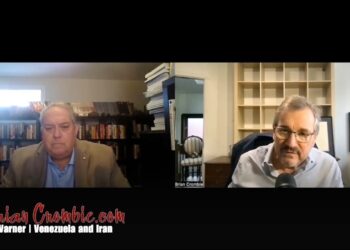MEDIA RELEASE
OTTAWA, May 23, 2012 – Quality of life in Toronto and Canada’s other major cities has been seriously harmed by urban planners’ “radical densification” policies that use “malicious incentives” to force developers to build within restrictive urban boundaries, a leading urban policy authority argues in a Commentary released today.
Radical densification policies that pack people into tight urban spaces and try to force them to use public transit are “hopeless,” Wendell Cox argues in Mobility and Prosperity in the City of the Future, released today by the Macdonald-Laurier Institute. As seen in Toronto, Vancouver and Montreal, they drive up housing prices beyond affordability for many, fail to reduce greenhouse gas emissions and even have the perverse effect of lengthening commute times, rather than cutting them.
Given the significant share of the Canadian population living in a handful of cities, the losses of efficiency occasioned by these policies are borne by the entire national economy and not just by workers, consumers and taxpayers in the cities themselves.
Cox points to the failed regional planning effort in San Diego, where officials plan to use half of all transportation development money on public transit between now and 2050. Yet, today less than two per cent of citizens use transit and – even with this massive investment – “transit share will remain under four per cent in 2050.”
It is a fallacy to think that public transit is quicker than automobile trips. Cox looked at the six Canadian metropolitan areas with populations of more than one million (Toronto, Montreal, Vancouver, Ottawa-Gatineau, Calgary and Edmonton), and found that transit trips take more than 50-per-cent more time than trips by car. “Forcing more people onto transit will not reduce work trip travel times,” says Cox, “but rather the reverse.”
While transit is typically oriented towards urban cores, the largest employment is now often outside the core. In Toronto, for example, approximately 325,000 people work in the core, but 350,000 work in the employment area centred around Pearson Airport, which stretches over 120 square kilometres.
Comparing Toronto to Dallas-Fort Worth (the cities have similar populations), Cox notes that the Canadian city has a density 164 per cent higher than the U.S. city and 10 times as many Torontonians use transit to commute to work. Yet, it takes longer to get to work in Toronto than it does in Dallas-Fort Worth: 33 minutes versus 26 in the Texan city.
Further, the median house price in Toronto is 5.5 times the median household income, while it is only 2.9 times the median household income in Dallas-Fort Worth. “The fundamental problem with urban growth boundaries . . . is that they ration land. This, of course, raises land prices and housing prices,” Cox writes.
“A well-governed metropolitan area will have policies that seek to minimize the cost of living, maximize discretionary incomes, minimize traffic congestion, and thereby improve economic growth.”
Noting that radical densification policies can retard economic growth, Cox points out that land-use and transportation policies in the Golden Horseshoe area of southern Ontario “are far more important to the Canada economy than the policies of New York are to the United States economy or the policies of the Rhine-Ruhr are to Germany. Getting these policies right (or wrong) affects Canadians everywhere.”
Wendell Cox is the principal of Wendell Cox Consultancy (Demographia), an international public policy firm that specializes in urban public policy, transport and demographics.
For more information or to arrange interviews, please contact Tripti Saha at tripti.saha@macdonaldlaurier.ca or call (613) 482-8327, ext. 105.
The Macdonald-Laurier Institute is the only non-partisan, independent national public policy think tank in Ottawa focusing on the full range of issues that fall under the jurisdiction of the federal government. www.macdonaldlaurier.ca





